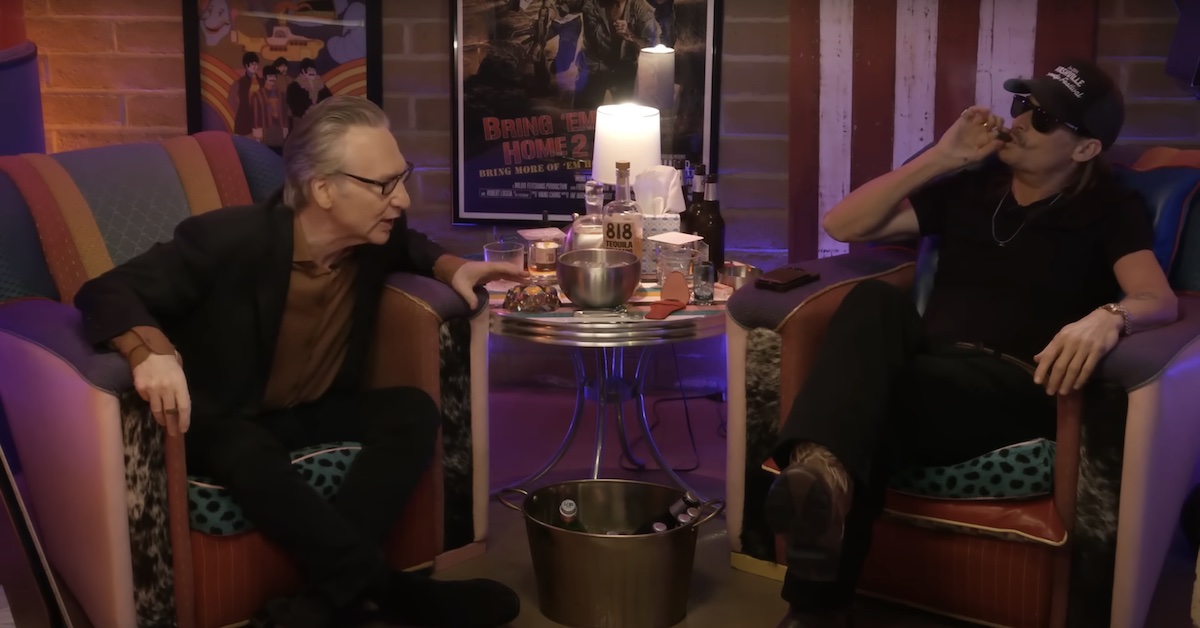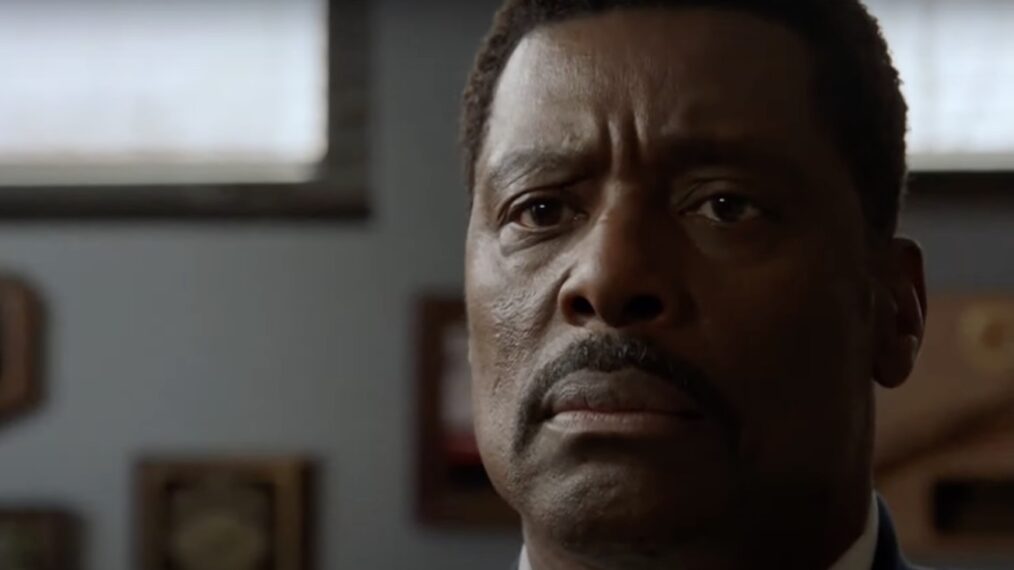To be a musical genius is also to be, in many ways, a captive of your own talent. There is much to be celebrated, and much to be cautious of, particularly if you come from a marginalized background.
This is more or less the message of Sly Lives! (aka The Burden of Black Genius), a new film about Sly Stone directed by Ahmir “Questlove” Thompson, available on Hulu. It covers Stone’s ascent to stardom and undeniable achievement in the world of popular music, but more importantly, the ways in which his very existence as leader of a mixed race, mixed gender band made him a target for hypocritical journalists and industry executives. Sly Lives! follows Stone as drug addiction overtakes his life, career and family, the unfortunate result of constant pressure to fit a narrative he was never going to adhere to, plus the usual tribulations of enormous fame.
As Vernon Reid of Living Colour, one of the film’s many talking heads points out, it could be boiled down to a question Black artists have been faced with in the music industry for decades: who do you think you are? Questlove himself, who also directed 2021’s critically acclaimed Summer of Soul and won an Oscar for it, wrestled with this idea in relation to his own career.
UCR recently spoke with producer Joseph Patel, who also worked with Questlove on Summer of Soul, about Sly Lives! and why Stone’s story matters.
At the beginning of the film, Questlove mentions this theory he has that success for many Black artists can be as intimidating, if not more so, than failure, and that Sly was one of the first Black artists to really publicly go through that. Can you elaborate on that and also: do you think it’s gotten easier or harder for Black artists in those circumstances?
It’s not really my question to answer. I mean, this is more Ahmir’s question, but just from my observation, I think he was seeing…he was going through it as well. I think he had enormous feelings of guilt after winning the Oscar for Summer of Soul. You know, would his bandmates treat him the same? … I think this has been on his mind for a while. I think he was still going through it. And my proximity to Questlove, both as his friend and collaborator, is understanding that idea and then how do we bring this to life as a part of Sly Stone’s story? And it was like — the theory is that Questlove sort of traced it back. The theory is that Sly is the first artist in the post Civil Rights Era who’s serving Black audiences and white audiences in equal measure, and what that must have been like. I mean, imagine being 26 years old, you’re a Black artist running this genre-mixing rock band, you’ve just headlined Woodstock, you’re on the cover of Rolling Stone, and you’re serving Black and white audiences, who all think that you’ve solved race relations through your music. And what pressure that must have been like for him, knowing that he had no template to follow. … It’s like, this is a movie about Sly Stone, but it’s also about the burden that comes with success for Black artists in America.
Yeah, I can definitely see that. It’s about the intersectionality of race and gender in the arts, it’s about how drug addiction is treated in the music industry, it’s about all these other broader conversations.
Yeah, I mean, there’s this great thing that happens towards the end of the movie where Sly Stone is talking about being in rehab. He’s talking about trauma and understanding generational trauma that’s sort of buried deep, but he doesn’t have the language for it. We didn’t have the language for it back then. He doesn’t ever use the word trauma, and the way he describes it, he’s like “Some things that might have happened to you that you don’t remember.” It was shocking to me when we saw that clip. It was just like, there was no language for what he was experiencing. Rehab had a stigma, therapy had a stigma. And that wasn’t that long ago, that was in the ’80s.
Exactly. I noticed also that the film highlights this idea that drug addiction was often treated as something that the user themselves was responsible for, instead of something that was happening to them as a result of external forces. Sly was never really asked during those years: what is happening to you that is causing this? Instead it was: why are you doing this?
Yeah, and, you know, it’s a fine line, too, because we wanted to show Sly’s story and tell his story with empathy, that these pressures and anxieties might have caused him to sort of hide behind — like Chaka [Kahn] says it, right? It’s like, cocaine gives you this sort of feeling that everything’s okay when it’s not. But we also wanted to give him agency, right? Like, we didn’t want to let him off the hook.
I know you’ve spoken recently about why Sly himself was not involved in the making of this film. He got sober a few years back around the time of Summer of Soul, and I’ll quote you directly here: “He can’t speak in full sentences. His eyes reveal a precociousness and a lucidity that’s there, but his motor function doesn’t exist.” This is something I’ve really been thinking about a lot over the past year or so — I actually run a podcast about Joni Mitchell, and she’s another person who, you know, has that lucidity, has all the elements of her true personality, but she’s not able to physically express herself in a way that I guess people would refer to as “normal.” I’m just curious your thoughts on that — what’s it like to make a film about somebody who’s very much still with us and also not? I would imagine there’s some challenges to that.
It presents a challenge. It was really a choice, right? Like, we could have forced the issue, and I think it would have been antithetical to the empathy we wanted to show in his story. But at the same time, you know, Sly is someone who became successful and came to our attention at a time when media was exploding, so we knew there were plenty of archival interviews that we could tap into where you would hear his voice.
But it also gave us a creative opportunity. Like in a perfect world, even if we got Sly on camera, could we get him to be reflective about these key moments in his career or these key struggles that he went through? Probably not. Most artists aren’t revealing in that way. But we could talk to [R&B singer] D’Angelo, who went through something similar. We could talk to Chaka Kahn who went through something similar. … I think that gave us this creative opportunity to add a layer to the storytelling where these artists serve as proxies for Sly. So when we brought them in to talk about Sly, they’re talking about Sly, but they’re also talking about themselves, and that was a kind of cool little layer to the story that makes this far from traditional music documentaries. … We didn’t want to talk to people who didn’t have skin in the game.
Watch the Trailer for ‘Sly Lives! (aka The Burden of Black Genius)’
There’s another section where the film is focusing on how Sly’s career and his musical output changed as the ’60s gave way to the ’70s, specifically around the “There’s a Riot Going On” era, and I believe it’s Q Tip in the film that talks about this idea of someone like David Bowie, a white man — progressive and innovative as he was, still a white man — going through career iterations and shifts in style and being, for the most part, praised for it. And Sly wasn’t afforded the same praise. He was met with a wall that essentially said: you can only be this one thing.
Yeah, and as soon as he sort of leaned the other way, you see language that those rock critics write about him — “pimp’s wisdom,” “gangster looks,” “house n-word of the Woodstock generation” — like the audacity to describe him that way. And it’s interesting you mention this because this is a specific story about a Black artist, and this idea of Black genius and the burden of Black genius, but if you look at the key art, the word Black is crossed out. And the idea behind that is — we didn’t want to put it in the film, and we didn’t want to beat people over the head with it — but the idea is, this is specific to Ahmir’s perspective, so he talks about Black genius, but really, you can extrapolate that to talk about the burden of success, the burden of genius in general. One of Ahmir’s close friends is Fiona Apple. She’s an artist that’s gone through something very similar, where she found success early in her career, but because she’s a woman, she got treated horribly for it. And, you know, it was just like, chewed up and spit out by the industry. So the idea really is, again, this is Ahmir’s story to tell, but we wanted people to understand that you could really extrapolate this to all levels of success in all facets of creativity.
What’s the most surprising or interesting thing you learned about Sly while making this film?
Specifically I had no idea that he produced the Great Society’s “Somebody to Love,” which becomes Jefferson Airplane‘s “Somebody to Love.” And it’s such a hippie anthem, psychedelic era anthem, and I didn’t know that Sly produced that. You know, we show it on screen for just a second, but in his studio session sheets, there’s a session he produces with the Warlocks who become the Grateful Dead. … But just his ability to produce, you know, white rock bands and R&B, I didn’t really have a handle on it until I saw and heard the music that he was producing. That was something I learned about him that I just was, you know, really floored by from a just music nerd level.
Listen to the Great Society’s ‘Somebody to Love’
What do you hope people will take away from watching this film?
I think we want the audience to leave the film with a sense of responsibility to the artists that give us so much, to give them empathy and grace and allow them to be human. I think that is something that Ahmir and I talked about in our first meeting as sort of where we wanted to land the plane. And that means, you know, not imposing our expectations on these artists if they don’t have it in them, and giving them grace to try new things and not have it be jokes or a mandate of some kind. I think that’s what we really want people to feel, is just the sense of empathy and allowing grace to these artists that give us so much, you know, and understanding that creativity is not a commodity like that. It’s human expression and and we should allow these artists to be human.
Sly and the Family Stone Albums Ranked
They leveraged radio-friendly, era-equipped soul-pop music at the turn of the ’70s to become one of the most influential groups from the period.
Gallery Credit: Michael Gallucci



























